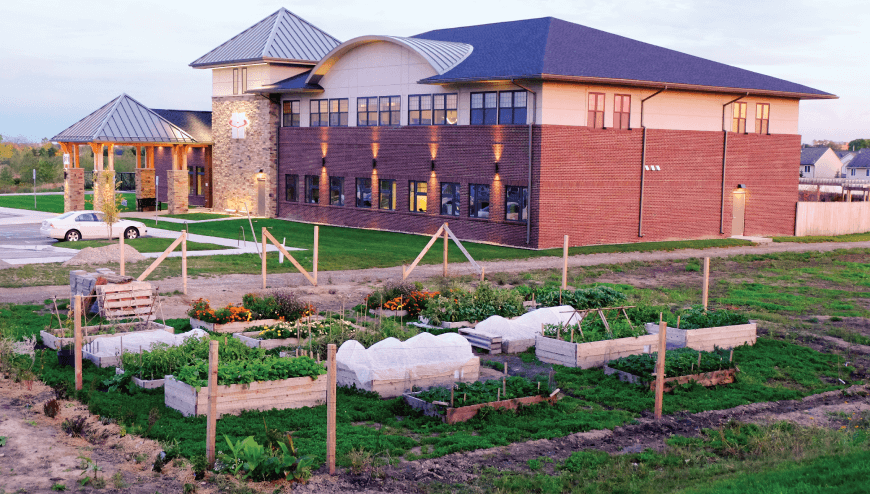
Supporting a Healthy Food System
A diet rich in healthy foods is essential to good health — that may be as close to a universal truth as there is. We are fortunate to be living at a time when good nutrition is better understood than ever before and residing in a state that boasts the second most diverse agricultural economy in the nation.
Farms in Michigan — 98% of which are family-owned — produce an amazing 300 varieties of food commodities. Most of that bounty stays here in the state, much of it sold at farmers’ markets throughout southeast Michigan and distributed to restaurants and grocery stores via the nation’s largest open air historic market — Eastern Market in Detroit.
But food fuels more than good health. It is also an economic driver, a conveyor of history and culture, a way to connect and socialize. Gardens and farms produce jobs as well as fruits and vegetables, and as those live near them know, they provide a sense of well-being and connection to nature. Food is at the heart of a good life, and that’s why so much of our work at the Community Foundation touches healthy food in one way or another.
We are pleased to be part of a healthy food revolution in southeast Michigan that is helping to generate many positive outcomes. The programs featured here are just a few of our many investments in gardening, healthy food access, and the food economy. Our goal is to help ensure that all residents of our region can obtain the food they need to grow and be healthy, and that all communities can leverage the power of food to reach their full economic and cultural potential.
HAVEN is Oakland County’s comprehensive program for victims of sexual assault and domestic violence, providing shelter, counseling, advocacy and educational programming to more than 20,000 people each year.
In 2015, the Pontiac-based organization was recognized with the Community Foundation’s Richard F. Huegli Award for Program Excellence and was voted Best Managed Nonprofit by Crain’s Detroit Business. HAVEN also opened a new facility in Pontiac that unites its shelter, clinical services, administrative offices and group meeting spaces — made possible by an $8 million capital campaign.
The centralized facility allows HAVEN a single place from which to provide victims and their children all the services they need to plan a path to safety and healing.
HAVEN has included an organic garden as the centerpiece of this healing community, made possible by a $75,000 grant over two years from the Community Foundation. HAVEN staff and volunteers have created a five-year plan that will eventually see the garden grow to an acre in size and include an orchard.
Food grown in the garden feeds the shelter residents and non-resident clients are free to select their own produce to take home. All receive training in cooking healthy meals and snacks, including cuisines of different ethnicities. Sometimes clients are given a challenge, such as taking a familiar food item like grilled cheese, and creating interesting combinations that include herbs and vegetables to make them healthier.
Because so many neighborhoods in Pontiac lack access to a grocery store or other sources of fresh food, the garden at HAVEN is a place where people can take steps to adopt a healthy diet as part of taking care of themselves and their children more holistically.
Non-residential clients often turn to the garden for a restorative and grounding experience after painful therapy sessions. The psychological healing benefits of nature are well known, but for people rebuilding broken lives, a vegetable garden also represents a practical, physical form of nurturance that comes to represent a healthier and happier future.
